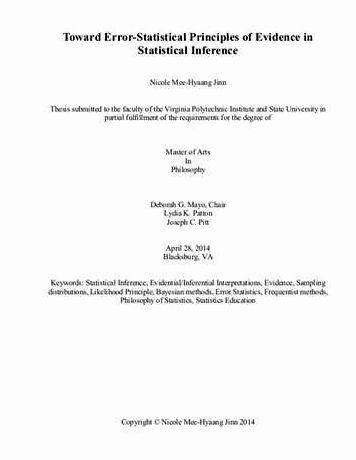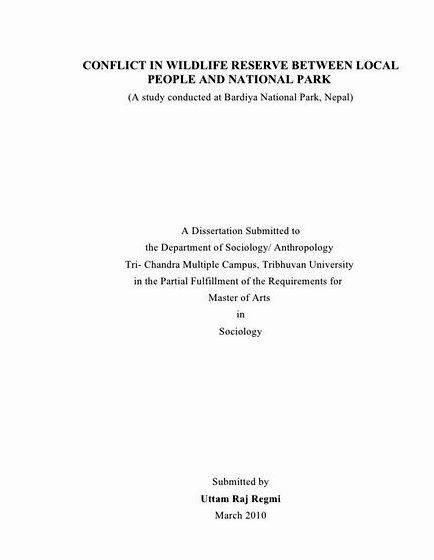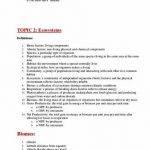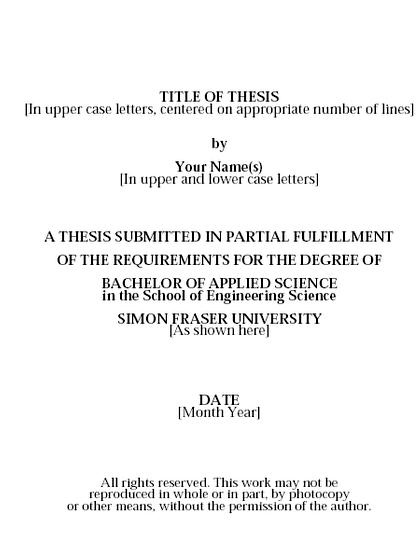Thesis Option
Choosing a Topic
There is no one way to choose a thesis topic, but the following are suggestions that might help you begin to think about developing a topic:
- Keep in mind from the very beginning of your graduate work that you may be writing a thesis, and therefore you should be keeping your eyes open for a possible topic.
- As you come across an interesting topic, write it down and keep a record. As you progress through your first year in the program, your ideas and interests may change, but sometimes those early interests remain and may even be nurtured by classroom experience or through independent readings or through work done in the capacity of an assistantship.
- Keep the thesis in mind when you write term papers. The term papers you write for classes may serve as a part of the literature review for your thesis. Sometimes a term paper can be expanded into a thesis, and you have already done some of the necessary preparatory work.
- Find out what faculty research interests are, and if somebody is doing something that tweaks your interest, find out more about it. Particularly, find out if the faculty member has collected data that might be accessible to you.
- Remember that you don’t have to collect original data in thesis writing, and you will probably save time if you don’t. A topic becomes more desirable if you see that you can make use of existing data, whether published or in raw form.
- Narrow down your list of possible topics to two or three, and seek out faculty members who know something about the topic(s) and discuss the topics with them. Tell them your idea. Is the work feasible? Are data readily available? Is there a faculty member who is really familiar with the relevant literature? Perhaps you have a potential thesis advisor there.
- Check the sociological abstracts for recent literature on your topic. Don’t be dismayed if you find there is a lot. In fact, your job will probably be made easier if there is. You will know the topic is considered important; you have the studies to replicate or build upon. Regardless of whether your topic is new or old, it is important to frame your paper in a way that lets your reader discover what you are contributing to the literature.
- On the basis of your literature review and discussions with faculty, write up a 2-5 page proposal. The proposal should incorporate a statement of the problem, theories you might pursue during your thesis and a proposed method of inquiry. This proposal will be taken with you when you request faculty members to be on your committee.
Choosing a Committee
As a sociology graduate student, the Chair of your committee must be a member of the graduate faculty in the Sociology department. (Therefore, a Criminal Justice professor cannot act as Chair of your committee.) Along with your Chair, you must have at least two additional committee members who will help guide you through the internship process. In the case of the committee members, they may come from sociology and/or criminal justice. Further, one of the committee members can come from outside this department. All committee members must have a designation as Graduate School Faculty, however.
First, when you approach a faculty member about chairing your thesis committee, it is best to come to the meeting with your written proposal. This way, the Chair can have an understanding of your plans. The Chair of your committee should be a faculty member who has the most knowledge or experience with the topic/method you are pursuing.
Second, it is best to find a Chair and then discuss with the Chair choices for the other committee members. You have every right to ask whomever you please, but the Chair may have ideas who might best fit with the thesis project you wish to pursue. Again, when talking to committee members, you should bring along your proposal to allow them the opportunity to understand your plan of action.
Once you have a committee, make sure to fill out the Registration of Thesis Title form and submit it to Graduate Records office.
Third, you will work most closely with the Chair of your committee. Speak with that person to determine the best way to approach your thesis. Some Chairs might want to meet weekly, while others might only wish to meet after milestones (for instance, after you have completed your literature review, or after you have begun your participant observation or developed the instrument).
Fourth, the committee should be apprised at each stage of your thesis writing. You do not want to begin your interviews, for example, unless you have received approval from your committee and the university (IRB approval) . Thus, make sure your committee has given you approval on each major stage of your thesis writing: literature review, methods section, instrument use, problems with data collection, findings section and so forth.
Thesis Procedures
Once you have selected a topic and a committee, you need to build a bibliography of relevant literature. We also advise that you to finalize data plans immediately. Using some of the literature to guide you and with a methodological strategy in hand, write up a more detailed proposal of 5 to 10 pages in which you specify:
- The nature of the problem, including what some other sociologists have said or done about it;
- A set of postulates or hypotheses that you will test (if relevant);
- How you intend to proceed; and
- What you expect to find.
Get the reactions of your Chair before handing the proposal in to the full committee. You may save time and trouble.
Once your committee accepts your proposal, you are on your way. The crucial next step is a thoughtful restatement of the problem, broken down into a timetable for your own use. Thesis writing is a complex process that can be confusing and frustrating. Remember, that everyone’s topic changes and morphs. Here are some steps that might help reduce some frustration.
- Data collection. Where, when, and how much. The proposal is not etched in granite, and as you proceed with your literature review you may decide to change things. But do so early on. Match the literature with available data. Always keep in mind the postulates or hypotheses that you began with; if these change your data needs will probably change.
- Analysis of data. You should already have in mind how you intend to analyze the data, and this is to some extent dictated by the nature of the data itself. Statistical manipulations are generally inappropriate with case studies, and aggregate-type studies have limited applicability for tests of hypotheses dealing with individual differences. In any event, bearing in mind both the limitations of your own data and the strategies that have been employed in the existing literature, select the data analysis strategy that promises to provide the most relevant information with the least amount of effort.
Always keep your hypotheses (or specified goals) in mind when dealing with the data. Try not to get involved in additional issues or problems — get the thesis completed first, for you can always go back later to pursue other issues.
Thesis Writing
Begin with a fairly brief review of the literature that you can conclude by summarizing in the form of a theory or hypotheses. Remember that the literature review should not summarize each article that you have read. Rather, the literature review should synthesize the readings in an analytical way. Thus, if you are gathering data about &”the meaning of work,&” your literature review should discuss how previous studies have theorized &”the meaning of work.&” Perhaps, you can break the literature down into three broad types: micro-, macro- and meso-theories of &”the meaning of work.&” But you MUST find an analytical way to discuss your literature. You MUST NOT summarize article by article. Further, you should also discuss how previous studies have empirically examined the topic under study. For example, discuss how and why previous studies have only been quantitative.
Next, discuss clearly the methods and data you will be dealing with, and here indicate any shortcomings.
Next, present the findings or analysis. When doing quantitative analysis, be parsimonious. The less you say&-so long as it is to the point and sensible&-the better off you will be. Present the data as they bear directly on your hypotheses.
If you have gathered qualitative data, remember to present quotes from people you interviewed and other relevant data to support the findings. When doing grounded theory, your methods and findings section should be the largest part of your paper. You want to develop theory through your findings, thus, make sure you provide enough evidence (quotes, for example) to persuade your reader that the conclusions you have drawn are relevant.
Be clear. Try not to write like the old masters (Weber, Marx, etc). Present tables or figures that are clear and easy to read. Readers who are confused at this point will hate the thesis. Discuss each finding as you present it.
Indicate whenever relevant that you are aware of contrary or supportive findings, but place the emphasis on your own findings at this point.
At the end of each chapter or section, summarize the findings (or analysis) in a table or list showing how each hypothesis fared.
In a new chapter or section discuss the implications of your findings or analysis and in more depth discuss how your study stacks up in relation to the existing literature. Conclude the thesis with suggestions for future work.
Here is a link to a great outline for How to Write a Thesis.
The Oral Defense
After the Chair and committee have agreed that your paper is in excellent form, you will establish an oral date. Your chair should establish a mutually agreed upon date for yourself and the committee and then inform everyone of the date and time (lasting anywhere from one-two hours). The Chair should also reserve a room where the oral will take place.
For the oral defense, the student should prepare a 10-15 minute presentation that discusses the purpose of the project, the theoretical context of the paper, major findings and conclusions drawn. Students should not go beyond the fifteen minutes so that faculty have time to address concerns. The remaining time will be spent with faculty and the student having a conversation about the project. Faculty may ask students specific questions about the project or questions about theory, methods or data. The student should be prepared to address issues in a professional and sound manner.
Deadlines
During the oral defense, faculty may ask students to revise their manuscript before they are willing to approve the student’s graduation. Please note that if students wish to graduate before the end of the semester, they MUST complete their defense approximately 2 weeks before the last day of the semester. Final written revisions must be submitted to the Graduate School approximately one week before the end of the semester.
Please refer to the Graduate School website for specific deadlines.
Southern Illinois University Edwardsville is authorized to operate as a postsecondary educational institution by the Illinois Board of Higher Education .
- Future Students
- Current Students
- Faculty Staff
- Alumni
- Business Partners
- Parents
- Community
- Veterans






 University of central florida thesis proposal
University of central florida thesis proposal Judy brady i want a wife thesis proposal
Judy brady i want a wife thesis proposal Liu post honors program thesis proposal
Liu post honors program thesis proposal Construction safety management thesis proposal
Construction safety management thesis proposal Quest ce que la philosophie dissertation proposal
Quest ce que la philosophie dissertation proposal






